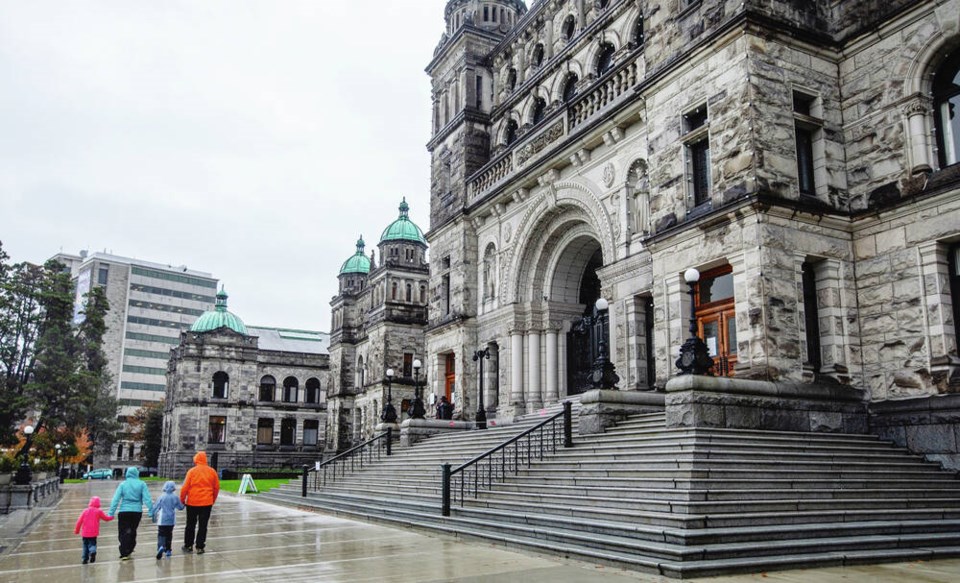The NDP government has taken another run at proving its devotion to Indigenous reconciliation, but all it did was widen the gulf between what it is saying and what it is doing in court.
It’s the second time in a month the government has staged an announcement that is negated by an incongruous court case that the attorney general’s lawyers are fighting.
The glaring difference emerged last month when the government announced a sweeping action plan on how reconciliation principles will be knitted into the entire body of B.C. law.
Sounded good. Except the elaborate unveiling of the action plan came near the outset of a lengthy B.C. Supreme Court trial where B.C. is contesting every aspect of a small Vancouver Island First Nation’s title claim to about 200 square kilometres of Nootka Island.
Now, a month later, the attorney general has issued “Directives on Civil Litigation Involving Indigenous Peoples.” It pushes the disparity to the point where you’d think the government must have forgotten it’s in court fighting the Nuchatlaht First Nation.
The small band of scarcely 160 people is laying claim to a big chunk of Nootka Island on the west coast. The government’s defence denies that the band was a true First Nation and also whether its members really occupied the area in question two centuries ago, among many other points.
Even if you accept that some disputes are inevitable and will wind up in court, it’s a bit much for the NDP to keep trumpeting its dedication to reconciliation when it’s going in the other direction in court.
And the case is not just some one-off issue that cropped up. The Nuchatlaht case has been building for several years, and the government has contested it throughout.
Premier John Horgan dismissed the disparity when first asked, saying the government has settled countless differences, but this one couldn’t be avoided.
He referred further questions to Attorney General David Eby.
“This direction to litigate, which is not provided by cabinet, it’s provided by the attorney general, questions about their strategies you should take up with him,” Horgan said March 30.
One part of the action plan jumped out at many First Nations leaders and other close watchers.
The action plan “recognizes the need to shift from patterns of litigation and expensive slow negotiations … to co-operative implementation through effect government-to-government relationships.”
Fast forward to last Friday, when Eby unveiled B.C.’s important new legal stance with his directives.
It’s full of high concept rhetoric about the rights, respect and the honour of the Crown.
But in the context of the Nuchatlaht case, the hypocrisy jumps off the page.
Examples:
“A strong and sophisticated government-to-government relationship … is not achieved through prolonged litigation, but through hard work … compromise and good faith by all.”
“Costly protracted litigation is not the preferred mechanism to advance meaningful reconciliation.”
“The core objective of the directives is to confirm an approach to litigation that prioritizes and promotes resolution, innovation and negotiated settlement, and that seeks to narrow or avoid potential litigation.”
Horgan said last week that Eby’s directives do not preclude litigation. “We want to reduce that and make sure that the engagement done before court is done in a way that can reduce the impacts, but we can’t and we won’t eliminate litigation entirely.”
There are 20 specific directives to government lawyers, who find themselves arguing with First Nations in court. Overall, they stress that B.C. will be minimally adversarial from now on.
Counsel are urged to avoid court at nearly all cost, and reminded they have a legal obligation to uphold Aboriginal rights. Indigenous interests are to be treated with maximum respect.
“To narrow the scope of litigation, admissions are to be made whenever possible.
“Facts that are known to support the statements in the Indigenous party’s pleading and may advance reconciliation should be explicitly stated and not just admitted.”
Eby’s new marching orders were read in court last week during the Nuchatlaht case, but the government is sticking to its guns.
It’s difficult to read the directives and imagine what the government thinks it is doing in the court case. Small wonder the Nuchatlaht are appalled and feel betrayed. They say the new conciliatory approach isn’t being used in their case.
Nuchatlaht Tyee Ha’with Jordan Michael said: “The hypocrisy of the provincial government is very apparent.”
• To comment on this article, write a letter to the editor: [email protected]



